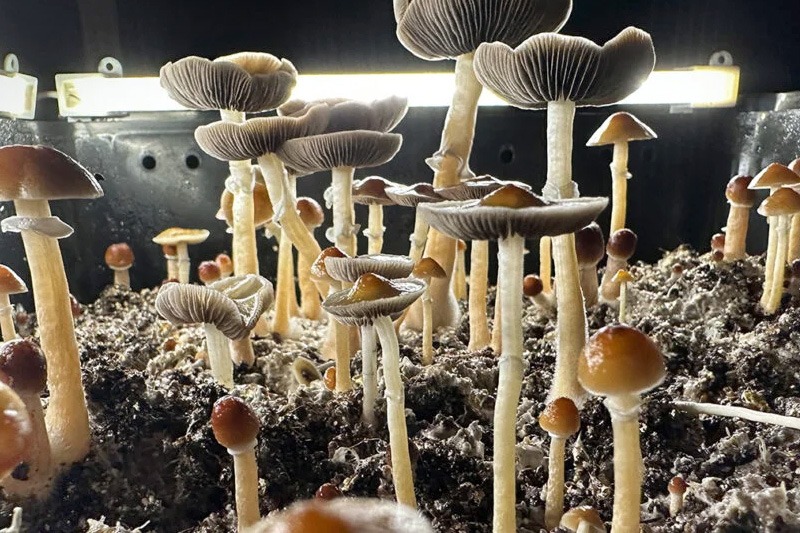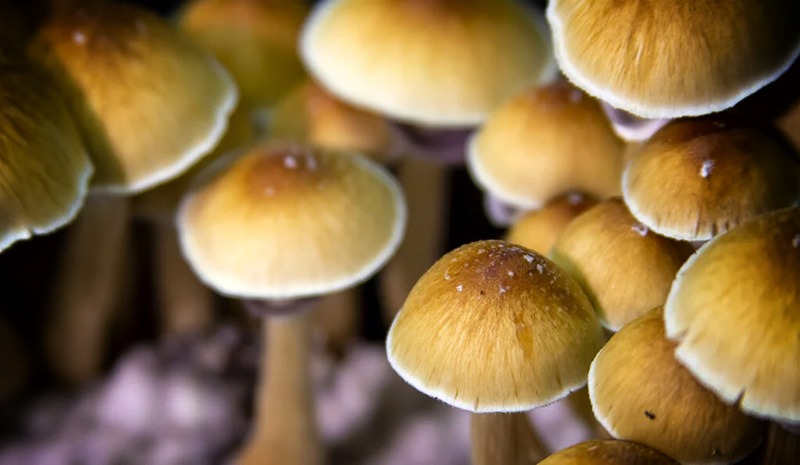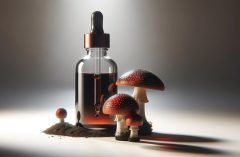Table of Contents

You, me, and everyone have long been conditioned to view psilocybin as an illicit hallucinogen with no real purpose beyond recreation, especially if you grew up in the 60s and 70s and used mushrooms as a party drug.
However, emerging research and changing attitudes are revealing this natural chemical in a new light – not as a party drug, but as a powerful psychiatric tool. Once dubbed magic mushrooms, it is undergoing a rebranding and a revival in the mental health field.
Extensive studies highlight its potential as an alternative treatment for depression, anxiety, addiction, and more. As the therapeutic use of psychedelics gains mainstream acceptance, psilocybin is poised to transition from a Schedule I narcotic to FDA-approved medicine.
This paradigm shift challenges our conventional wisdom and brings new hope to sufferers of mental illness. The story of this wonder drug is one of scientific promise prevailing over stigma and unfounded fear. Its history is certainly checkered, but its future in psychiatry now looks far brighter.
A Brief History of Psilocybin
Psilocybin, the active compound in ‘magic mushrooms,’ has a long history of human use. Anthropological evidence suggests these magic mushrooms were used ceremonially by indigenous peoples of Mesoamerica for thousands of years.
However, in the mid-20th century, this and other psychedelics became popular recreationally, raising concerns about their safety and abuse potential.
Criminalization and the Rise of Underground Use
In 1970, psilocybin was classified as a Schedule I controlled substance, effectively criminalizing it and halting most research. Nevertheless, this did not curb the intense interest, especially in the baby boomer generation.
Instead, it spurred an underground culture of recreational use that persists even today. While some underground users report positive experiences with the drug, its unregulated use also poses risks, just as these risks were possible in the 70s, it can be even worse in the 2020s.
A Resurgence of Scientific Interest
In recent decades, researchers have revisited its therapeutic potential. Rigorous clinical trials have found it effective at reducing symptoms of anxiety, depression, and post-traumatic stress disorder when combined with good psychotherapy.
The resurgence of interest in psilocybin’s medical benefits has led some researchers to call for removing it from Schedule I to facilitate research and legally regulated therapeutic use. It is the opinion of this writer that magic mushrooms should never become a legal, easily obtainable substance for anyone and everyone.
An Uncertain Future
The future of this potential breakthrough drug therapy is unclear. While research into its therapeutic potential is promising, it also has a history of recreational misuse. Policymakers must weigh these factors carefully in determining whether and how to reclassify the drug to allow regulated medical use.
Psilocybin’s checkered past contributes to this complex decision but should not prevent us from pursuing its promising medical future. With proper safeguards and oversight, it could become an effective treatment for those suffering from mental health conditions.
Emerging Research for Mental Health
Recent clinical trials have shown promising results for psilocybin as a treatment for certain mental health conditions.
Reducing Anxiety in Patients with Life-threatening Illnesses
Research shows that psilocybin can help alleviate anxiety and depression in patients with life-threatening illnesses like cancer. A 2016 study found that cancer patients who received a single dose reported significant decreases in anxiety, depression, hopelessness, and demoralization. The benefits were sustained for over six months. It appears to produce an “ego-dissolution” experience that helps shift patients’ perspectives and reduces distress about death.
Treatment of PTSD
Psilocybin also shows promise as a treatment for post-traumatic stress disorder (PTSD). In one study, patients with chronic PTSD reported a decrease in symptom severity after a single, or sometimes, repeated treatment.
Brain scan data revealed changes in neural patterns linked to decreased activity in the amygdala, a region involved in fear and stress. It may help PTSD patients process traumatic memories and find new meaning in their experiences.
While more research is still needed, the existing evidence suggests that it could revolutionize mental health care and provide relief for those suffering from conditions that do not respond to mainstream treatments.
With proper safeguards and medical oversight, psilocybin may take its place as an accepted therapeutic tool.
Psilocybin as a Treatment for Depression
 The psychoactive compound found in “magic mushrooms,” is also showing promising results as a treatment for depression. Researchers have found that psilocybin, under careful monitoring and with proper preparation and aftercare, can have tremendous antidepressant effects.
The psychoactive compound found in “magic mushrooms,” is also showing promising results as a treatment for depression. Researchers have found that psilocybin, under careful monitoring and with proper preparation and aftercare, can have tremendous antidepressant effects.
Psilocybin appears to work differently than conventional antidepressants by increasing connectivity in the brain.
Rapid antidepressant effects
Psilocybin has been shown to reduce symptoms of depression very quickly. In clinical trials, this treatment has significantly improved mood and reduced depression symptoms within weeks, compared with the weeks or months needed for most antidepressant medications to become fully effective.
The rapid effects suggest that it may be a promising treatment for severe, treatment-resistant depression where conventional medications have failed.
Lasting impact
Psilocybin’s antidepressant effects also appear to be long-lasting. Studies have found that after one or two doses under medical supervision, antidepressant effects endured for up to six months. This contrasts with many antidepressant medications which require daily use to maintain effects. The longevity of its impact may make it especially useful for the maintenance treatment of chronic depression.
Low risk of side effects
Unlike most antidepressant drugs, psilocybin appears to have a low risk of side effects or toxicity, though more research is still needed. When administered properly in a medical setting, psilocybin does not seem to produce addiction or dependence in patients.
The most common side effects are psychological, including fear, anxiety, and paranoia, though these tend to be temporary and thought to be related to the apprehension of actually experiencing a “trip”.
However, psilocybin can exacerbate symptoms in people with psychotic disorders and should be avoided in those populations.
In summary, psilocybin shows promise as a novel treatment for depression due to its rapid, long-lasting effects and low risk of side effects or toxicity for most individuals.
Larger clinical trials are still needed, but psilocybin may prove to be a breakthrough in mental health care for people suffering from depression. We have already seen a lot of positive results.
Psilocybin for PTSD: A Promising New Option
Psilocybin found in “magic” mushrooms, is showing promising results for treating post-traumatic stress disorder (PTSD) in clinical trials too. It provides a means to address the root cause of PTSD symptoms through a therapeutic psychedelic experience. Might be hard to believe, but under the right therapist, PTSD can be massively reduced or eliminated completely when the patient works with Psilocybin.
Reducing Activity in the Default Mode Network
The default mode network refers to a set of interconnected brain regions that are active when a person is awake but resting. This network is hyperactive in people with PTSD, and psilocybin works by temporarily reducing activity in these regions.
This allows for increased flexibility and connectivity between other areas of the brain involved in emotional processing and memory. Patients can reframe traumatic memories in a new, less frightening way. I’ve seen this in action, its real, and its uses will widen as we learn more.
A recent study found that psilocybin-assisted therapy led to significant reductions in PTSD symptoms even after just one or two treatment sessions.
At a 4-week follow-up appointment, 67% of participants no longer met the criteria for PTSD. Positive results have been shown to persist for at least 6-12 months after treatment.
The FDA recently granted the drug “breakthrough therapy” designation for PTSD, expediting its development process. Several large-scale clinical trials are now underway to further evaluate its effects. If approved, it could provide an alternative treatment for the millions of people suffering from PTSD.
Psilocybin therapy is still in its early stages, but many, like myself, see it as the future of PTSD treatment. By addressing the root causes of trauma in a gentle, insightful manner, psilocybin helps patients find peace and closure at last.
For sufferers of chronic, treatment-resistant PTSD, psilocybin may represent hope where there was none before. This ancient compound’s healing potential is only beginning to be understood.
The Future of Psilocybin in Mental Health Care
As research on psilocybin continues to demonstrate promising results, the potential for mainstream acceptance and legalization as a treatment for mental health conditions seems increasingly viable.
Several factors point to the possibility of it becoming an accepted psychiatric treatment in the coming years.
Growing Public Support
Public opinion on psychedelics has become increasingly favorable, especially for medical and therapeutic use.
Surveys show majority support for legalizing it, specifically for medical treatment. As more people become aware of the promising research on psilocybin, support will likely continue rising.
Lawmakers and regulators may face increasing pressure to approve psilocybin as a treatment.
Expanded Access and Legalization
Some jurisdictions have already legalized psilocybin for medical use, and others are considering bills to do so.
As it gains regulatory approval and becomes legally available as a treatment, physicians will have the opportunity to prescribe it to appropriate patients.
This could ramatically increase access for those who may benefit. However, legalization also brings risks, like diversion for recreational use. Strict controls and oversight would be needed.
Investment and Innovation
Psilocybin research has attracted investment from private donors and philanthropic organizations in recent years like you wouldn’t believe.
As the prospects for legal medical use and profits increase, major pharmaceutical companies may invest in developing psilocybin into an approved treatment.
Their resources could accelerate research, trials, and approval. However, some critics argue that “medicalizing” psilocybin may lead to high treatment costs and limited access.
Overall, it appears poised to become an accepted option for mental health care, but its path forward requires a balanced, ethical, and evidence-based approach.
With proper safeguards and oversight in place, regulated medical use could revolutionize treatment for many who suffer from difficult-to-treat conditions.
Though, a profit-driven model risks commodifying this powerful experience in a way that loses its therapeutic potential.
An open and informed public discussion will be needed to guide policy and set the right course.
Conclusion
As we have seen, this drug has come a long way from its origins as a recreational drug to a promising mental health aid. While more research is needed, initial studies show its potential to revolutionize treatment for depression, anxiety, PTSD, and more.
Sometimes, those of us who work in the field, begin to believe the hype that psilocybin could do some very good things; and yet it receives much more criticism from more conservative or stubborn-minded fools who know no better.
With an open mind, rigorous science, and responsible implementation, society may continue to progress toward accessing the healing power of this compound.
Carefully controlled clinical use provides hope that we can reduce the burden of mental illness through this innovative approach.
Though the path forward for psilocybin progress has a few obstacles, it is one well worth pursuing. With an earnest societal conversation, if that’s still possible in our woke world of identity politics with a heap of idiocrasy on top, and commitment to safely expanding treatment options, psilocybin may transition fully from a stigmatized substance to respected therapy.
The opportunity is before us to alleviate suffering and change lives for the better. Now is the time to come together and see it through.
More on Psilocybin in Spinfuel
Preparing for a Luscious, Transcendent Solar Eclipse on April 8, 2024 With Psilocybin Mushrooms
The Power of Magic Mushrooms: 5 Benefits of Using Psilocybin for Trauma
Micro dosing by Unlocking the Mind: My 2023 Journey with Psilocybin
Psychedelic Mushrooms for Medical Purposes: Unveiling Nature’s Potential





